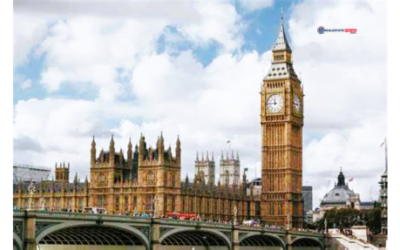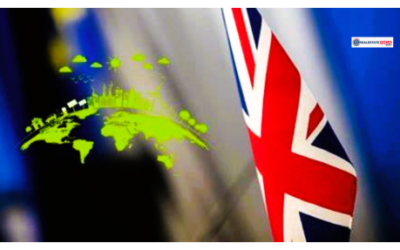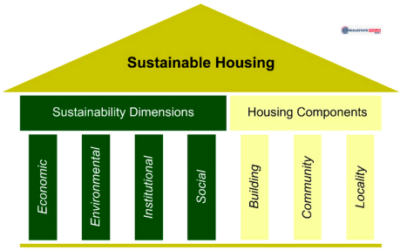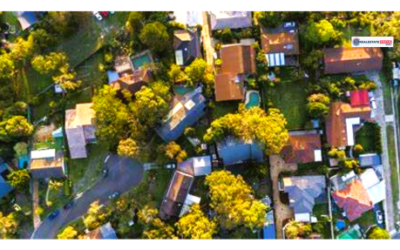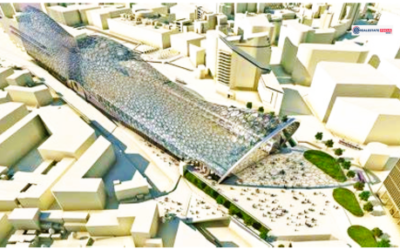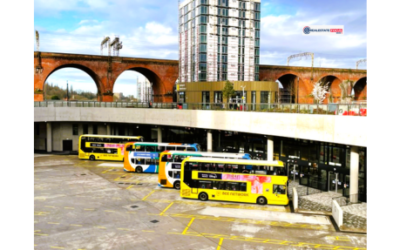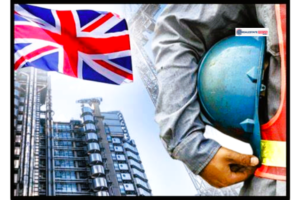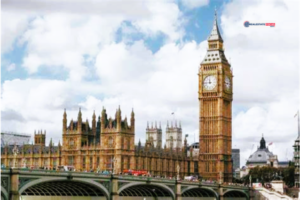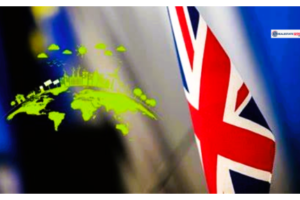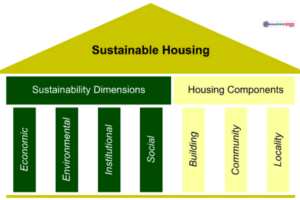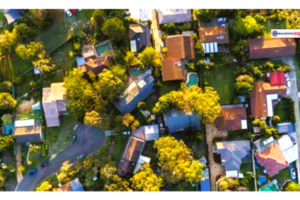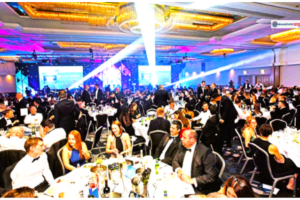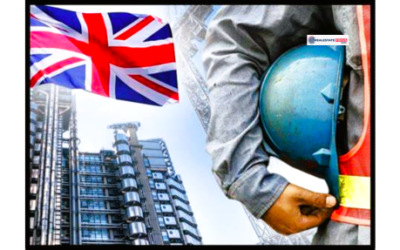
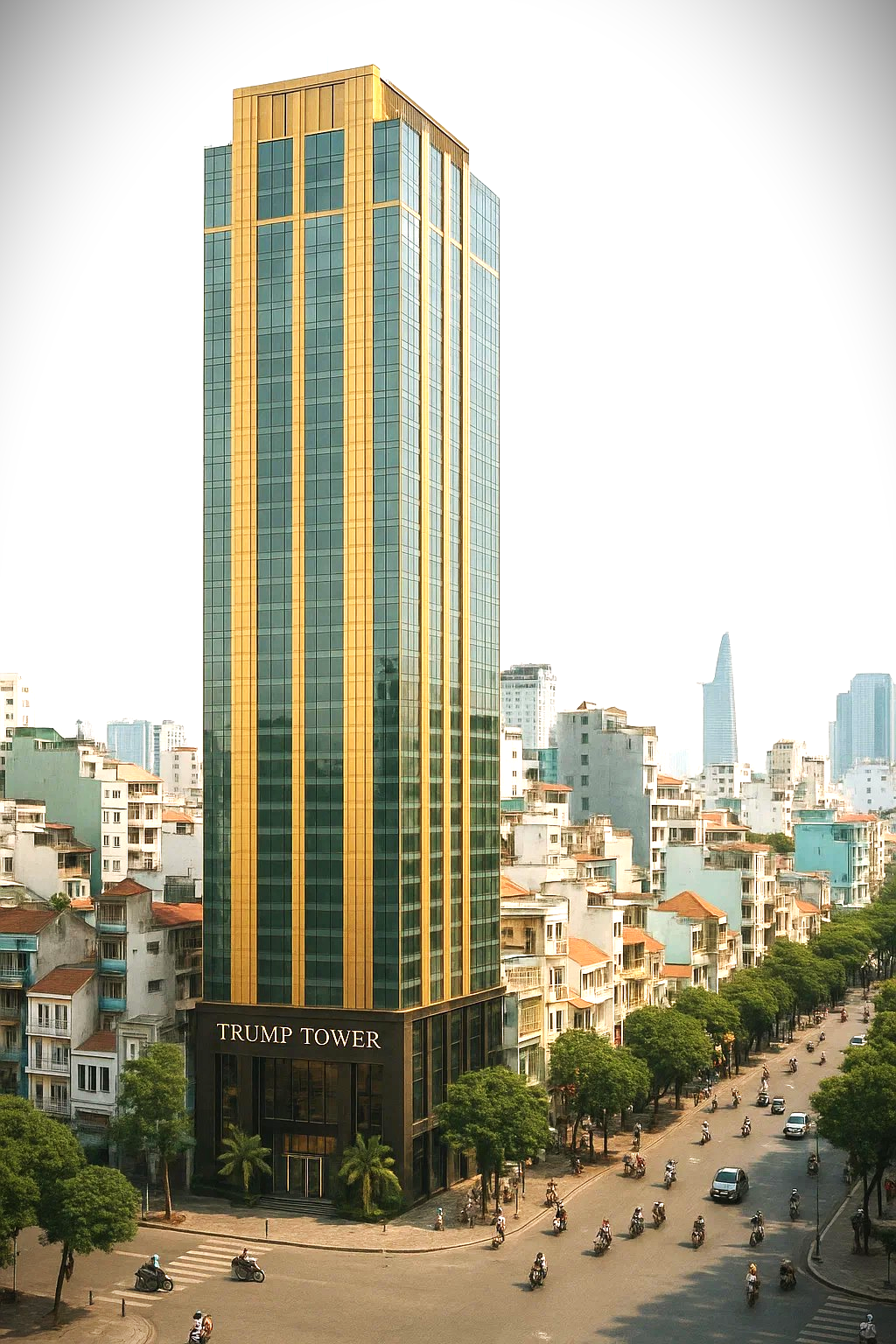
Trump Tower in the East: Vietnam Emerges as New Frontier for Former President’s Real Estate Ambitions
A Blend of Business, Politics, and Golf in Southeast Asia
Ho Chi Minh City, Vietnam – In a move that could reshape Vietnam’s luxury real estate market and reignite global debate on the intersection of business and politics, the Trump Organization is eyeing Ho Chi Minh City as the next home for its iconic Trump Tower brand, Vietnamese officials confirmed Tuesday.
The development would mark the first Trump-branded tower in Southeast Asia and comes as the company deepens its partnership with Vietnamese conglomerate Kinh Bac City Development Corporation (KBC). With Eric Trump, the former president’s son and executive vice president of the Trump Organization, arriving in Vietnam this week to scout locations, the project is swiftly moving from possibility to planning.
From Mar-a-Lago to Mekong: The Trump Brand Expands East
Officials from Ho Chi Minh City stated they had conducted field surveys of two prime sites in the city’s fast-developing eastern district, signaling that momentum is already building around the proposed skyscraper. While details remain under wraps, local media outlet Tuoi Tre reported that the new high-rise would carry the “Trump Tower” brand and cater to the region’s elite investors and foreign buyers.
The expansion is not limited to the south. On Wednesday, Eric Trump is also scheduled to attend the ground-breaking ceremony for a $1.5 billion luxury resort and golf complex in Hung Yen province, just outside Hanoi. The 990-hectare property will feature a 54-hole championship course and premium villas positioning it as one of Vietnam’s most ambitious lifestyle projects.
Luxury, Legacy, and Leverage?
This bold return to the international development scene raises old questions with new urgency: To what extent does the Trump Organization benefit from Donald Trump’s political clout?
Critics argue that ventures like these blur the lines between private profit and public service, especially as the former president positions himself for a 2024 campaign comeback. The Vietnam venture, timed amid trade negotiations between the U.S. and Vietnam, further complicates that narrative.
Still, local officials appear eager to embrace the potential economic influx. Vietnam’s Prime Minister Pham Minh Chinh met with project director Charles Boyd-Bowman in March, where the Trump-KBC alliance pledged to complete the golf complex by March 2027 just in time for Vietnam’s hosting of the Asia-Pacific Economic Cooperation (APEC) summit.
Trump’s Vietnam: A Relationship Revisited
Trump’s history with Vietnam is already layered. In 2019, as sitting U.S. President, he visited Hanoi for a high-stakes (and ultimately fruitless) summit with North Korean leader Kim Jong Un. At the time, he praised Vietnam’s rapid development and its role as a U.S. economic partner.
Now, the Trump Organization’s deepening footprint in the country could signal a return not only to the region but to the geopolitical stage via business diplomacy.
Vietnam’s High-Stakes Balancing Act
For Vietnam, the Trump Tower proposal represents both a prestigious investment and a delicate political choice. Welcoming one of the world’s most polarizing figures carries reputational risk, especially amid ongoing U.S.-Vietnam trade talks and the looming specter of new tariffs.
Yet for a nation keen to establish itself as a luxury destination in Asia, the opportunity to host a Trump-branded skyscraper and golf resort may be too enticing to pass up.
The Skyline, and the Stakes
If completed, Trump Tower Ho Chi Minh City would stand as a potent symbol of global real estate ambition, an audacious bet on Vietnam’s future wrapped in the gold-accented aesthetic of a controversial brand.
It would also mark a turning point in Southeast Asia’s integration with Western capital, where the lines between politics, real estate, and international diplomacy continue to blur.
As Vietnam eyes the clouds, so too does Trump’s legacy towering once more, this time above the Saigon River.


